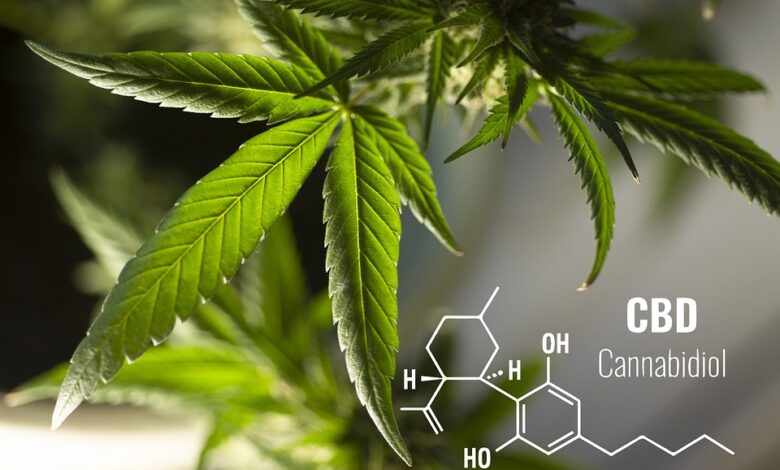The Science Behind Delta 9 THC: How Does It Affect the Body?

Cannabis, also known as marijuana, has been used for centuries for its medicinal and recreational properties. One of the most well-known compounds in cannabis is delta 9 tetrahydrocannabinol, commonly referred to as delta 9 THC. This compound is responsible for the psychoactive effects of cannabis and has been the subject of extensive research to understand how it affects the body.
Delta 9 THC is a cannabinoid, a type of chemical compound that interacts with the body’s endocannabinoid system. This system is made up of receptors, enzymes, and endocannabinoids that play a crucial role in regulating various physiological functions such as mood, appetite, pain, and memory. When delta 9 THC enters the body, it binds to these receptors, particularly the CB1 and CB2 receptors, which are found in the brain, central nervous system, and immune system.
The interaction between delta 9 THC and the endocannabinoid system leads to a range of effects on the body and mind. Some of these effects include:
Euphoria and relaxation: Delta 9 THC is known for its ability to induce feelings of euphoria and relaxation. This is due to its interaction with the CB1 receptors in the brain, which leads to changes in neurotransmitter levels and the modulation of mood.
Pain relief: Delta 9 THC has been found to have analgesic properties, meaning it can help alleviate pain. This is thought to be achieved through the activation of CB1 receptors in the brain and spinal cord, which can reduce the perception of pain.
Increased appetite: Delta 9 THC is known to stimulate appetite, often referred to as the “munchies.” This effect is believed to be the result of the compound’s interaction with the CB1 receptors, which are involved in regulating appetite and food intake.
Impaired memory and cognition: One of the side effects of delta 9 THC is impaired memory and cognitive function, particularly short-term memory and attention. This is thought to be the result of its effects on the CB1 receptors in the hippocampus, a region of the brain involved in memory formation.
Mood alterations: Delta 9 THC can have an impact on mood, leading to feelings of euphoria or anxiety. The exact mechanisms behind this effect are not fully understood, but it is believed to be related to its interaction with the endocannabinoid system and the modulation of neurotransmitter levels.
Delta 9 THC is commonly consumed through smoking, vaporizing, or ingesting cannabis products. When consumed, the compound is rapidly absorbed into the bloodstream and distributed throughout the body, leading to its psychoactive effects.
The Science Behind Delta 9 THC: How Does It Affect the Body?
Research into the effects of delta 9 THC on the body has provided valuable insights into its mechanisms of action and potential therapeutic applications. Some of the areas of interest include its potential use in pain management, treatment of nausea and vomiting, and its effects on mood and anxiety.
Pain management: Delta 9 THC has been found to have analgesic properties, making it a potential candidate for the treatment of chronic pain. Studies have shown that it can reduce pain intensity and improve pain tolerance in patients with various conditions, including neuropathic pain and cancer-related pain.
Nausea and vomiting: Delta 9 THC has been used for its antiemetic properties, particularly in the treatment of chemotherapy-induced nausea and vomiting. It has been found to be effective in reducing these symptoms and improving the quality of life for cancer patients undergoing chemotherapy.
Mood and anxiety: While delta 9 THC can induce feelings of euphoria and relaxation, it can also lead to anxiety and paranoia in some individuals. Research into its effects on mood and anxiety has yielded conflicting results, with some studies suggesting potential therapeutic benefits in conditions such as PTSD and depression, while others have reported an increased risk of anxiety and psychosis with long-term use.
The potential medical applications of delta 9 THC have prompted the development of pharmaceutical formulations that harness its therapeutic properties while minimizing its psychoactive effects. These products, such as synthetic cannabinoids or cannabis-derived extracts, are being investigated for their safety and efficacy in various medical conditions.
FAQs
Q: Is delta 9 THC legal?
A: The legal status of delta 9 THC varies by country and state. In some places, it is legal for medicinal and recreational use, while in others, it remains illegal. It is important to familiarize yourself with the laws and regulations in your area before using cannabis products containing delta 9 THC.
Q: Can delta 9 THC cause addiction?
A: Delta 9 THC has the potential for abuse and dependence, particularly with long-term and heavy use. Individuals with a history of substance abuse or mental health issues may be at a higher risk for developing a dependence on delta 9 THC.
Q: Are there any side effects of delta 9 THC?
A: Common side effects of delta 9 THC include dry mouth, red eyes, increased heart rate, impaired coordination, and memory impairment. In some individuals, it can also lead to feelings of anxiety, paranoia, and psychosis.
Q: Can delta 9 THC interact with other medications?
A: Delta 9 THC can interact with certain medications, particularly those that are metabolized by the liver. It is important to consult with a healthcare professional before using cannabis products containing delta 9 THC, especially if you are taking other medications.
Q: Are there any medical conditions that contraindicate the use of delta 9 THC?
A: Individuals with a history of psychosis, schizophrenia, or other psychiatric disorders may be at a higher risk for adverse effects with delta 9 THC. Additionally, pregnant and breastfeeding women, as well as individuals with cardiovascular disease, should avoid its use due to potential risks. It is crucial to consult with a healthcare professional if you have any underlying medical conditions before using cannabis products containing delta 9 THC.
In conclusion, delta 9 THC is a complex compound with diverse effects on the body and mind. While it has potential medicinal applications, it also carries risks and side effects that should be carefully considered. Research into its mechanisms of action and therapeutic potential continues to provide insights into the complexities of cannabis and its constituents. It is important to approach the use of delta 9 THC with a cautious and informed perspective, considering its legal status, potential risks, and individual health considerations.
[ad_2]




